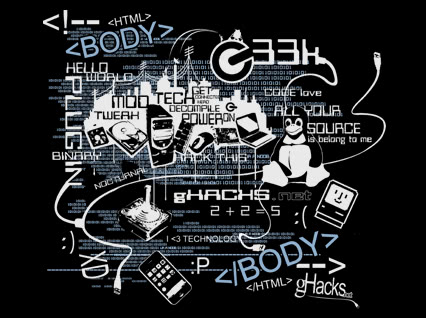The technology that still has to improve in 2012

If you look around at what technology has brought us in 2011 it's been a truly momentous year. The iPad 2, new exciting Android tablets with the proper tablet version of the OS, Windows 8, the HP TouchPad with WebOS, Windows Phone 'Mango', Ultrabooks, cameras with GPS, multi-touch in laptops, new super-efficient Intel and AMD processors and more. These have all either been announced or released this year. In short technology is moving ahead at a pace faster than ever before and amazingly the prices do seem to be tumbling.
This is all great news but there are still some technologies that have got to change in 2012 and they need to do this very quickly or else the technology we use will move so far ahead of them that innovation itself will begin to suffer. Those technologies are all concerned with the Internet itself or with Internet communications.
It's a similar story with mobile networks. The USA was late to the 3G game but has forged ahead with 4G connections. Many other countries however are still several years away from moving to 4G, but which time it'll be time to move onto something else in all probability. The mobile networks also need to sort out the mess that is unlimited data plans and manage their networks in such a way as to allow people to use mobile broadband properly. The pricing for mobile broadband also has to drop by at least 50% next year. There's already more than enough money to be made and many people, especially those in isolated areas would love to move away from an ADSL line and onto a SIM contract. At the moment though it's still far too expensive to do this.
Many people think that a universal wireless solution like a full roll-out of 4G or WiMax will solve the problem and make traditional broadband lines obsolete. Telecommunications companies need to protect their bottom lines however and, as such, a lot of innovation is being stifled for reasons of profit and share prices.
When we actually are able to get online though using our sexy new devices we find that the web is still looking as old and outdated as it was in 2003. Back then we didn't have the preponderance of smartphones, tablets and touch-screen PCs that we do now. Even next year's iMacs are rumoured to be multi-touch but almost none of the world's largest websites have moved to a touch-friendly design yet. I did this with my own website last month and firmly believe it's absolutely essential. Some companies are making a move in this direction with the BBC launching a part-touch-friendly website recently but the new YouTube redesign is traditional menus and mouse control only.
It's one thing having new interfaces and new form factors that enable us to use the web in new and exciting ways, and new operating systems that are designed primarily around touch. If we can't get good, quick and stable connections to the web though, or properly and effectively use the websites we visit when we get there all this technology is going to waste. Here's hoping that 2012 brings us much more than just a move to IPv6 and some 4G radio spectrum auctions. What technologies do you think really need to change in 2012 and do you agree with me here? Why not tell us in the comments.
Advertisement













Even I was thinking the same as user:Jyo. Though we had a great leap in terms of computing power, we still lag in in efficient power Managment.
Also I would like to see how the HTML5 is getting evolved. And after effects of Flash withdrawal from web.
Interesting things to view would be :
Windows 8 hitting the road also interested in seeing its ascession with well settled win7.
I have yet to find ANY touch device that I enjoy using. This includes my smartphone. I would rather have a stylus than use my fat fingers. So converting the whole web so it works good with touchscreens seems to me to be a HUGE waste of effort.
Who are you trying to fool?
– iPad2 was barely an upgrade on the original
– Android tablets are great for competition but otherwise have all the same flaws that the tablet format has (read-only digital magazine hosts due to crap input options)
– Windows 8 is betaware with a bunch of coloured boxes suitable mainly for tablet (one finger punching and swiping) parading as a new interface paradigm
– HP TouchPad and WebOS were a complete failure!
– Windows Phone ‘Mango’ is probably the least relevant technology ever released in the mobile arena
– Ultrabooks, LOL – whoops those netbooks ever tech-blog writer guffawed about turned out to be a complete waste of time since they were too small, so they make mega-thin 3/4-sized laptops and that’s ‘new’ ?
– Cameras with GPS we’re invented half a decade or longer ago – they’re called mobile phones! Adding that to cameras so we can upload photos with EXIF geotagging ? Wow, hold me back from the store!
– Multi-touch in laptops .. *snore*
– New super-efficient Intel and AMD processors … AMD, super-efficient? I’d love to agree but most acknowledge the new-gen AMD chips are craptacular. Fusion-based chips might qualify for this ‘super-efficeint’ tag however.
Perhaps your need to take a look at technology in the long-term perspective, from a social perspective, not to mention the software perspective!
Does the world really need a new generation of CPUs? They reached fast-enough-for-every-use-bar-games status years ago.
Do we really need an operating system upgrade when XP is still all most people want and can be customised up the wazoo to look and behave like any version since?
Did we really need a fifth tablet OS in addition to Windows, Android, iOS, avrious linux flavours? Why do you think HP gave it away? They couldn’t make any money out of it, that’s why! Why do you think they killed their tablet as well? The World War III going on in the patent court cases all over the world is why!
That’s the real story of 2011: the year software began being crippled by litigation!
As I type this from a hotel in the Philippines on my “complete waste of time” netbook which I barely noticed in my pack during the 33 hour trip, I’d have to conclude you have no direct experience with them. I have this browser open along with Outlook and Word and it’s holding its own. I’m getting the job done. Is it blazing fast? No, but as you pointed out, do we really need faster CPUs? This little Atom is doing just fine. Sure, I can’t play games on it, but I can do office work with ease. The battery life is easily triple of my full sized laptop and it weighs less than half. It’s also great for casual web surfing while I’m sitting on the couch or in bed at home. Honestly this netbook has been one of the best technology purchases I’ve ever made. Once they refine the ultrabooks a little more I might move to one of those, but only if they retain the advantages of the netbooks.
hahahahahahahaha :) You made my day!!
Nice page. I like this concentration. I like it very much.
“Here in the UK we think that people who live in countryside villages and who still have to use dial up or get a 512k/sec broadband line have a bad deal.”
Really? I have a 256 kbps connection and I am happy with it.
“Here’s hoping that 2012 brings us much more than just a move to IPv6 and some 4G radio spectrum auctions.”
I know enough about computers but I have never been able to understand IPv6. why should I switch from IPv4 to IPv6? Will it be necessary to switch in future? How can I use IPv6 on my computer? Can any person with an internet connection use IPv6?
You see. OK, someday I will understand – and I have not spent any huge amounts of time understanding it. BUT I am an advanced user and still don’t know this. How can people with just average or little knowledge understand this?
This is the point. I bet that IPv4 usage will be triple of IPv6 usage atleast until 2018.
Your website might be good for tablets but with NoScript you can’t use it at all… Personally, I don’t like those sites.
I think we can all agree that advancements in battery life technology will make everyone happy.
@Jyo, I completely agree :)
“If we can’t get good, quick and stable connections to the web though, or properly and effectively use the websites we visit when we get there all this technology is going to waste.”
In France, not long ago there were rumors about the politicians wanting to put back a cap to the data usage for the end users. This in a hope to deter people from piracy and alike. They came up with Hadopi…a data filtring/analyzing followed by sanctions for the guilty ones…
Probably similar schemes exist in other E.U countries or even in the US/CAN, other parts of the world.
At the same time, Internet Service Providers are working diligently to better the ease of access, speed and quality of the bandwidth.
A good analogy for this kind of double speech is the Automobile industry building fast cars that can hit 300 km/h but which are not allowed to bypass 90~~120km/h on our high ways.
Why build those fast cars and even make adds based upon the Power/Speed of those engines ?
I fear that the same scenario will replicate itself in IT, Broadband Access.
Not even mentioning the will to control what people might want to search, find and view; to build other opinions. For instance foreign TV broadcast accessible online.
I doubt that 4G/WiMax is the solution. Not unless you want mobile towers on every street corner. In Australia we’ve concluded that fibre to the home is the best long term bet. The $40 billion cost will seem cheap in a few years. With the UK’s much higher population densities the price per home would be much cheaper.